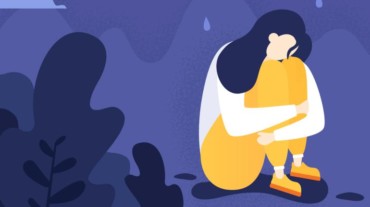
Never before have we as a country discussed and debated mental health as ferociously as we have been in the past few months. And it’s high time, right? We are after all in the middle of a pandemic that many experts believe is already leading to increased incidences of mental health crises—especially depression and anxiety.
Add to that the suicide of a beloved Bollywood actor, and the spotlight has been shining ever so brightly on depression and related mood disorders. And yet, when you look at popular discourse—none of this is a good thing.
Because rather than focusing on creating awareness, those who are talking about this mental health ailment are steadfastly propagating myths.
From claims that state drugs cause depression to the deep-rooted belief that the rich and famous can never be depressed—the conversation ignited by celebrities and kept alive by their followers highlights just how ignorant we are of this malady.
And so, in a bid to do right by the millions of Indians suffering from depression, here’s an insight into what depression is NOT—so you know right from wrong, activism from propaganda, and good mental health from poor.
1. Depression is not only caused by drugs
There is no denying the fact that those who use drugs—then be it for recreational purposes or to feed their addiction—are at a higher risk of falling prey to depression. But if a recent social media post from Bollywood’s not-so-favourite controversy’s child has made you think that drug abuse is the only reason for depression, then here’s a reality check:
Depression is caused a slew of factors, including genetics, stressful or traumatic events, environmental factors, societal pressure, and even underlying ailments.
In fact, according to an article published on Harvard Health Publishing—depression is more than just a chemical imbalance in the brain. It can be brought on by a variety of factors, often when they occur together.
2. Depression cannot be willed away into oblivion
Perhaps the most dangerous thing people believe about depression is that you can make it go away or snap out of it, if you just try hard enough. This couldn’t be further from the truth.
Ask anyone suffering from depression and they will tell you they did not choose this to happen to them. And that if they could, they would have probably left their depression behind to lead a fulfilling life.
Select Topics of your interest and let us customize your feed.
PERSONALISE NOWAlso, read: Why talking about your depression is the key to recovery, according to a psychologist
But this malady is notorious for instilling feelings of hopelessness in its patients. Which is exactly why it needs proper diagnosis, treatments, and lifestyle interventions. These are most often the only ways to tame the disease.

3. Happy people can also be depressed
Here’s a newsflash for you: just because someone is happy, doesn’t mean they can’t be depressed. Not everyone who is depressed is likely to feel sad, hopeless, and despair all the time. The way depression presents itself varies from person to person. The severity of someone’s depression has a lot to do with this too.
So while some people battling depression can spend their lives seeming perfect, others might find it difficult to get out of bed and even get basic chores done.
4. Success is not a defence shield against depression
Did you know stress and depression are closely related? Scientific research links chronic stress to elevated levels of cortisol and decreased dopamine—which is associated with depression.
Success is hardly attained without pressure or stress. By this logic, it would be safe to assume that successful people are as likely to be depressed as their less-successful counterparts—if not more.

And let’s not forget genetics, trauma, and environmental factors—all of which have a huge role to play in someone’s risk of depression.
You see, for decades now, psychiatrists, neuroscientists, and doctors and researchers from other fields of medical science have been studying depression. And they all agree on one thing: depression is complex. It is not caused by one thing and doesn’t present itself in the same way for everyone. So let’s stop simplifying it, shall we?